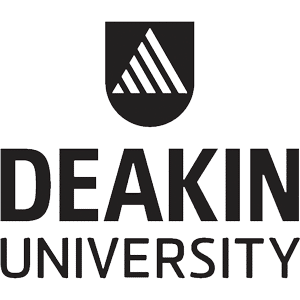Develop analytical and modelling skills, setting you up for careers in business and government.

Australian universities offer online economics degrees that prepare you for interesting and rewarding careers. Earn a bachelor's or master's degree with flexible study arrangements.
Studying economics can enhance your thinking skills broadly. Students learn principles and theories that can be applied to resource and financial problems. You'll also develop analytical, modelling, and report writing skills for informing decisions.
Although economic models can be challenging to understand, an economics education is valuable precisely for this reason. You'll learn to balance different narratives, recognise the significance of assumptions, build market knowledge, and be open to different perspectives.
Study Economics Online

Studying online is an effective way to gain knowledge and skills in the field of economics. By doing an online degree, you achieve the same learning outcomes as on-campus students. It’s just that you can do it without travelling. Learning is faster because you don't waste time getting to and from classes.
Economists are trained to conceptualise how value is created. They understand the market forces that drive economic activity and development. Learning economics is intellectual and can be achieved at home in front of a computer just as well as in a physical classroom.
Bachelor of Economics Degrees
The best undergraduate programs give students plenty of options. They allow for specialisations in areas such as microeconomics, macroeconomics, quantitative analysis, econometrics and public policy.
A good economics courses also allow students to choose interesting electives and do combined degrees. The online study of economics can be blended with other business units as well as disciplines such as law, information technology and statistics.
Lerna Courses has selected the best online economics degrees from Australian universities. These flexible programs achieve high ratings in the Graduate Outcomes Survey.
Deakin University - Bachelor of Commerce (Economics)
Deakin University offers an Economics major as part of the 3-year Bachelor of Commerce degree. Students qualify for this specialisation by choosing enough relevant units. Subjects include analytical techniques, competition and industry, econometrics, and labour market economics. Deakin has a large online program in business and related disciplines, creating many options when choosing elective units.
UNE - Bachelor of Economics
The University of New England has a flexible economics program. To qualify for a major, students need to complete prescribed units and choose some relevant electives. UNE has 4 possible majors as part of the Bachelor of Economics degree: Applied Econometrics, Economics, Economic Development, and Environmental Analysis and Policy.
Online Masters Degrees
Studying online for a Master of Economics is a convenient way to upgrade your qualifications. The degree demonstrates an ability to use maths to help answer difficult questions about business or government policy.
- If you're already an economist, it'll strengthen your credentials and allow you to gain specialist skills in certain branches of the discipline.
- If you want to move into economics, a masters is the way to do it. But you should have a strong background in maths and/or business studies.
You can continue to work while earning a valuable qualification. Online programs are designed for busy people. Most online postgraduate students work while studying. Squeeze study into gaps in your schedule while avoiding travel time.
UNE - Master of Economics
The University of New England has the complete online Master of Economics program. The course takes 2, 3 or 4 semesters depending on whether you have a graduate diploma, a relevant bachelor degree, or a bachelor degree in another field. There is a wide selection of units, though a few may not be fully online. Students write a dissertation as part of the course. Specialisations include Agricultural Economics, Economics, and Econometrics.
Courses are Only Difficult in Parts
Is economics a difficult major? Yes, in parts but not overall. The most challenging subjects are mathematics-intensive and require students to learn abstract models. At times, you will be mentally stretched.
However, economics is a more generalist discipline than many people imagine. Students learn a variety of conceptual and communication skills. Subjects you may study include:
- Agricultural or resource economics
- Econometrics, statistics, quantitative business analysis
- Finance, banking, international business
- Management, marketing
Professional economists do empirical and qualitative analysis. They report in mathematical terms and by writing reports in a natural way that most people can follow. Economics is underpinned by logic but there is also an intuitive side to understanding economic systems.
Economics Careers
Economics graduates forge careers in many different fields although the number of open positions for economists is less than what it used to be. With an honours or higher degree, you may be able to work as a professional economist in government or with a large business. But there are many other options.
As an economics graduate, you should be able to both write and do math. That can give you an advantage over many other candidates when going for a generalist position. Economic degree-holders often branch into business fields such as administration, planning, policy development and management.
Is a Degree in Economics Worth It?
An economics degree is a worthwhile education investment. The major leads to diverse career opportunities, including in business management, non-profit organisations, government, consulting, data science, and financial analysis.
The coursework covered will provide you with a good understanding of finance, markets, consumption, and resource allocation, giving you skills and knowledge of value to employers. Some of the subjects are challenging and require critical thinking and analysis, but the rewards are worth it.
Graduating with a sense of self-worth and an ability to problem-solve and make financial decisions can lead to lucrative and fulfilling jobs. Economics is rated among Australia's highest-paying business majors, leading to roles such as economist, economic analyst and policy analyst.




